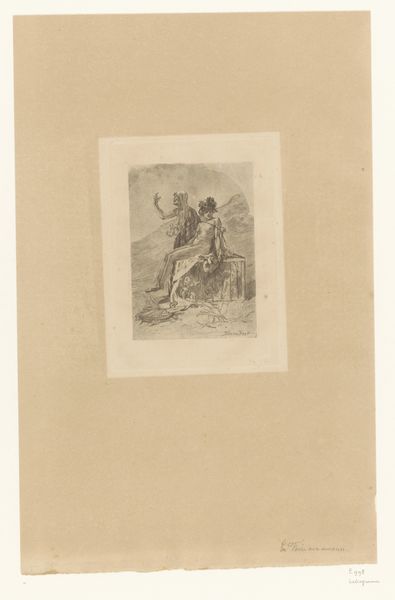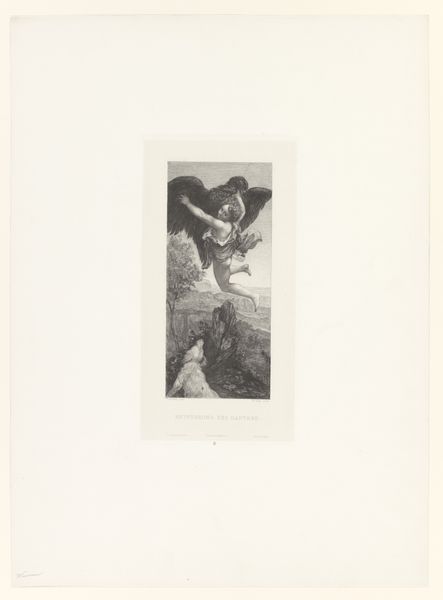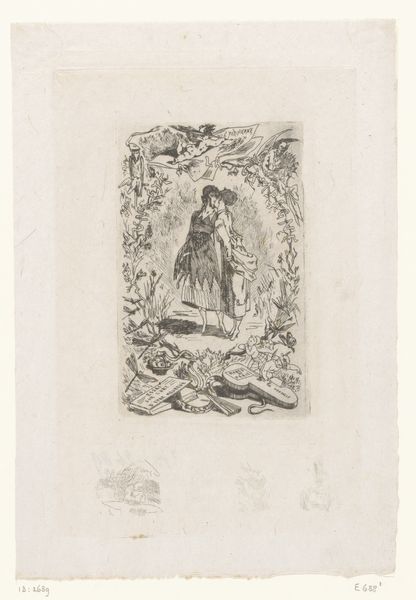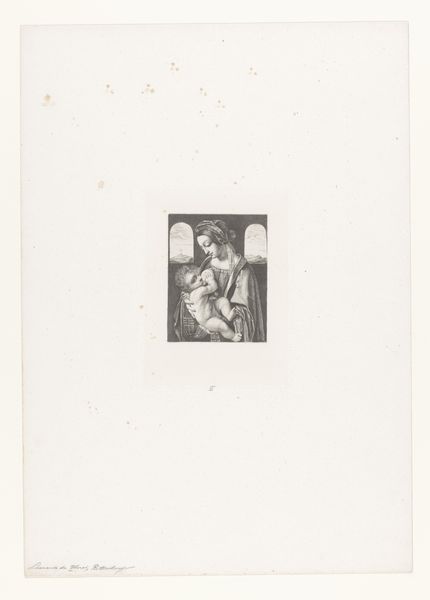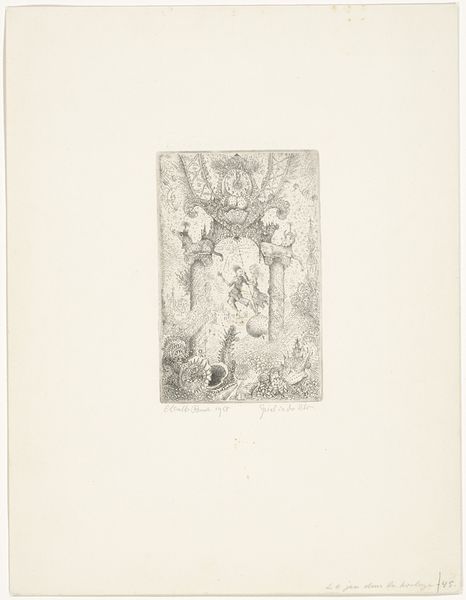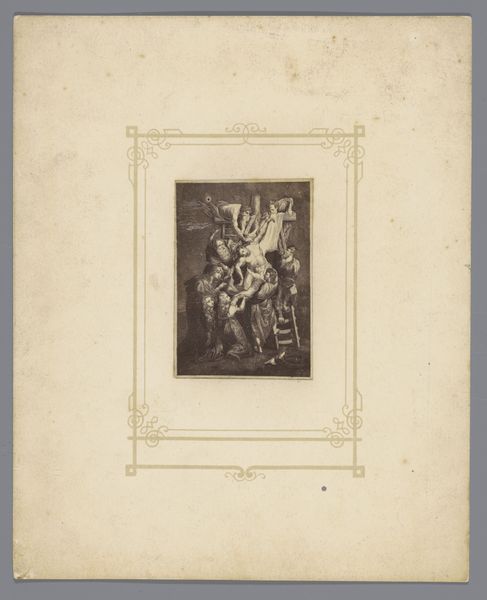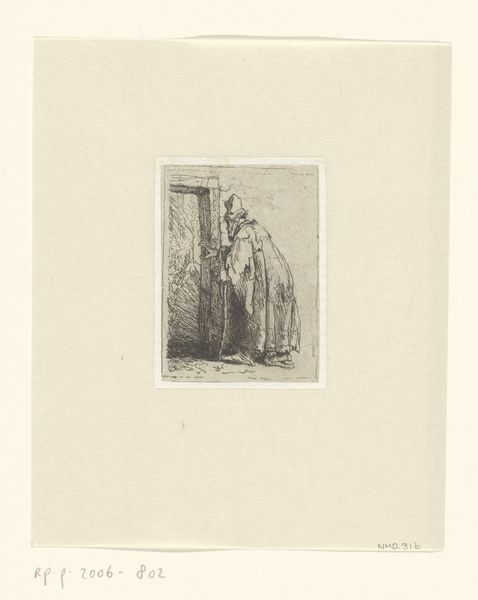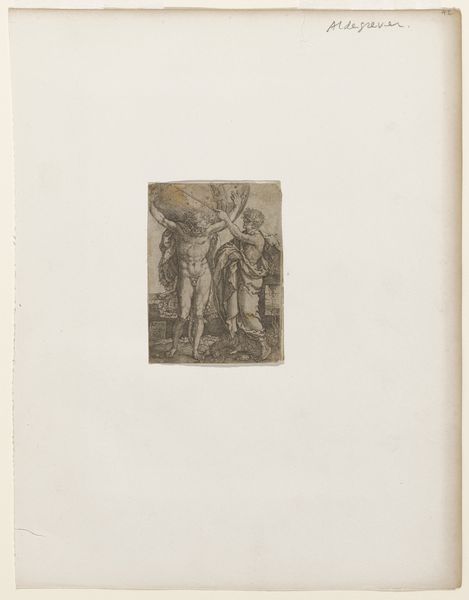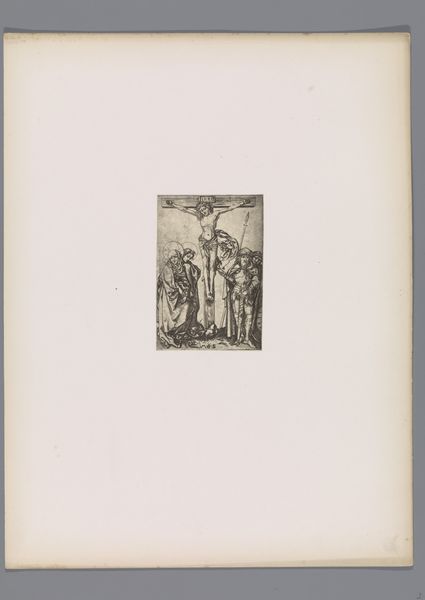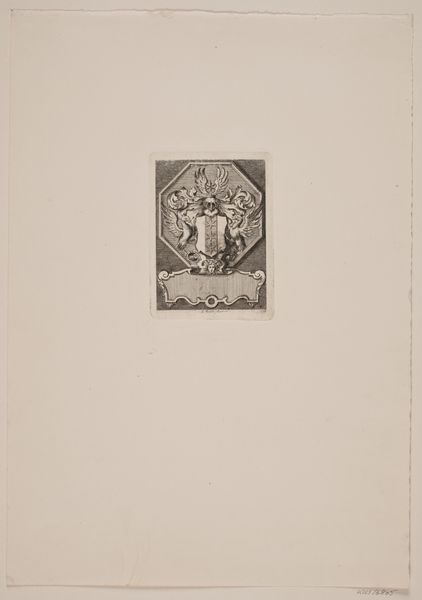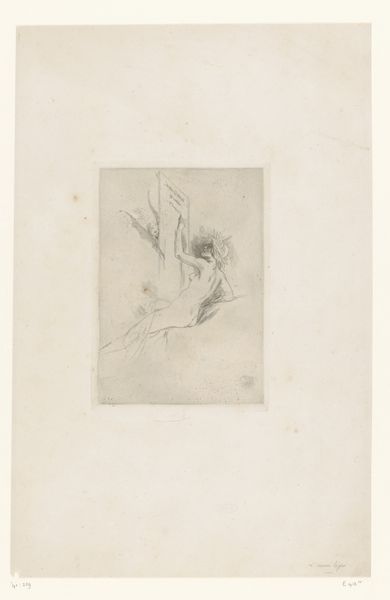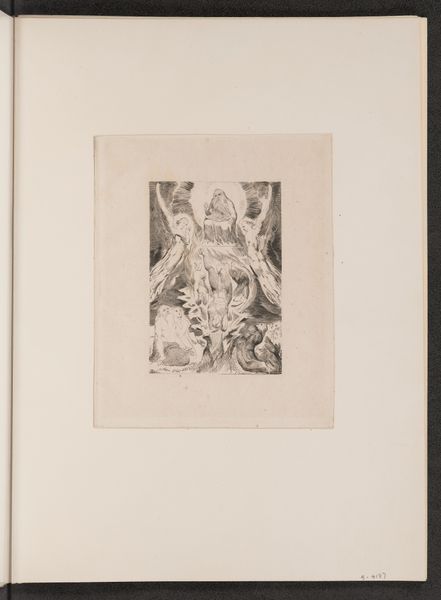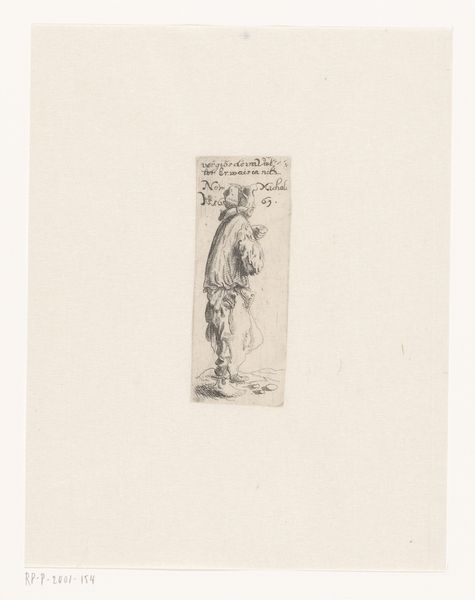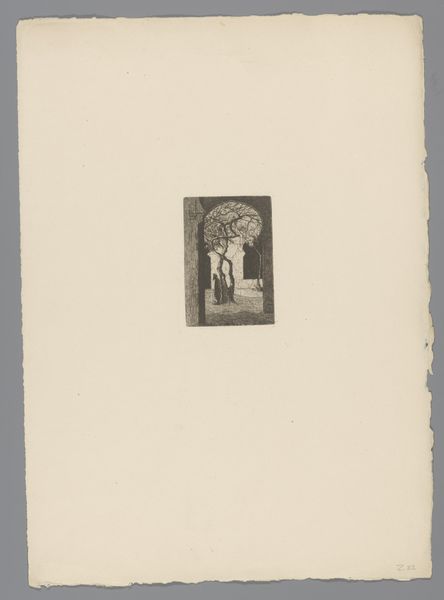
print, etching, engraving
portrait
narrative-art
etching
greek-and-roman-art
etching
figuration
line
history-painting
academic-art
engraving
Dimensions: height 239 mm, width 147 mm
Copyright: Rijks Museum: Open Domain
Léopold Flameng created this print, Oedipus and the Sphinx, in nineteenth-century France, using etching. This was a period when artists looked to the past for inspiration. The story of Oedipus, who unknowingly killed his father and married his mother, was told by the ancient Greeks. In this image, Oedipus confronts the Sphinx, a creature with the body of a lion and the wings and face of a woman. The Sphinx terrorized the city of Thebes, devouring anyone who couldn't answer her riddle. Oedipus solved it, causing the Sphinx's death and saving the city. Flameng made this print at a time when French society was undergoing great changes and ancient Greek stories held a particular cultural significance. By revisiting this tale, Flameng taps into themes of fate, knowledge, and the power of human intellect. To properly understand the significance of the work, researchers consult historical texts, mythological studies, and critical analyses of 19th-century French art. Each of these texts can inform our understanding of the social context and enduring appeal of this timeless myth.
Comments
No comments
Be the first to comment and join the conversation on the ultimate creative platform.
